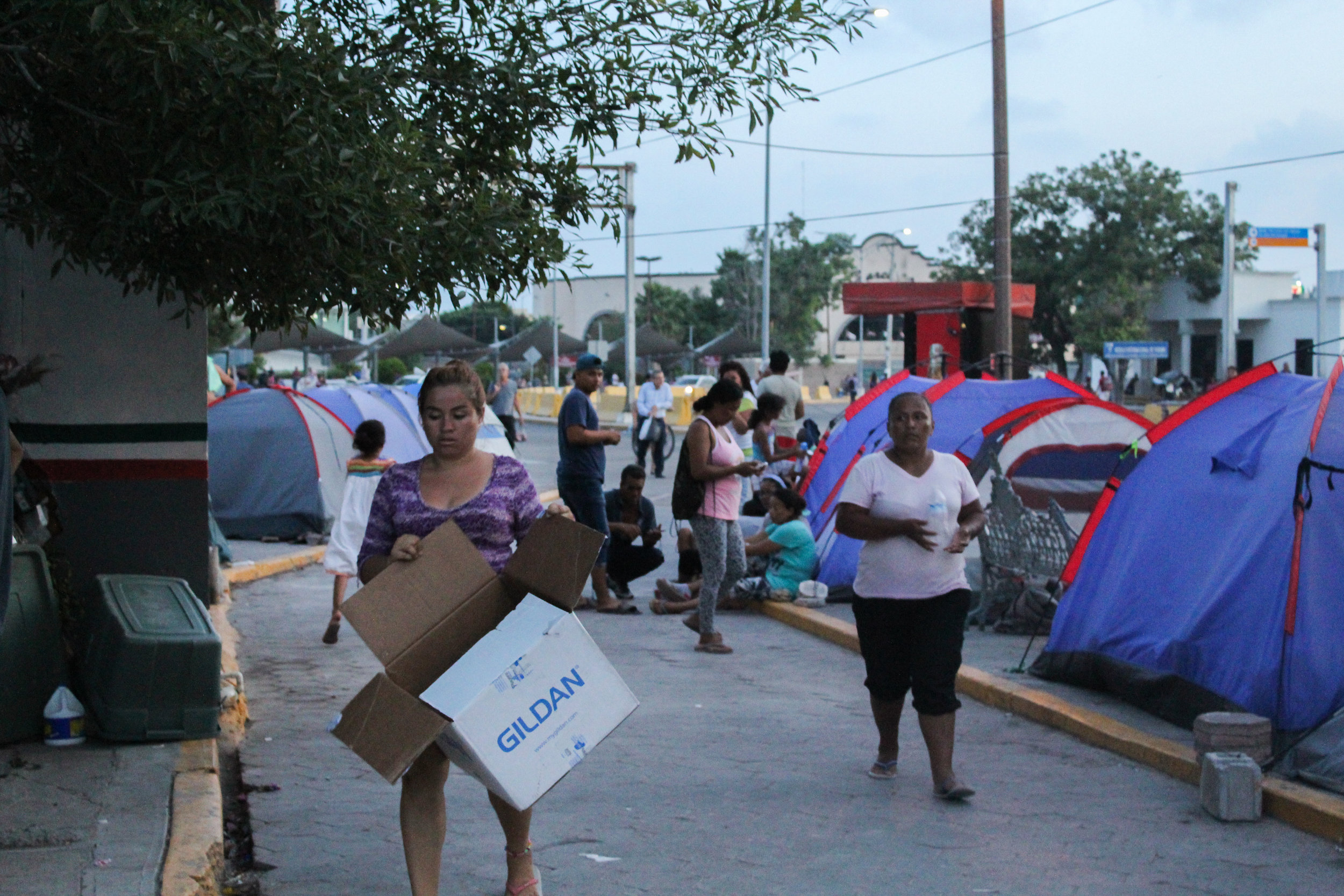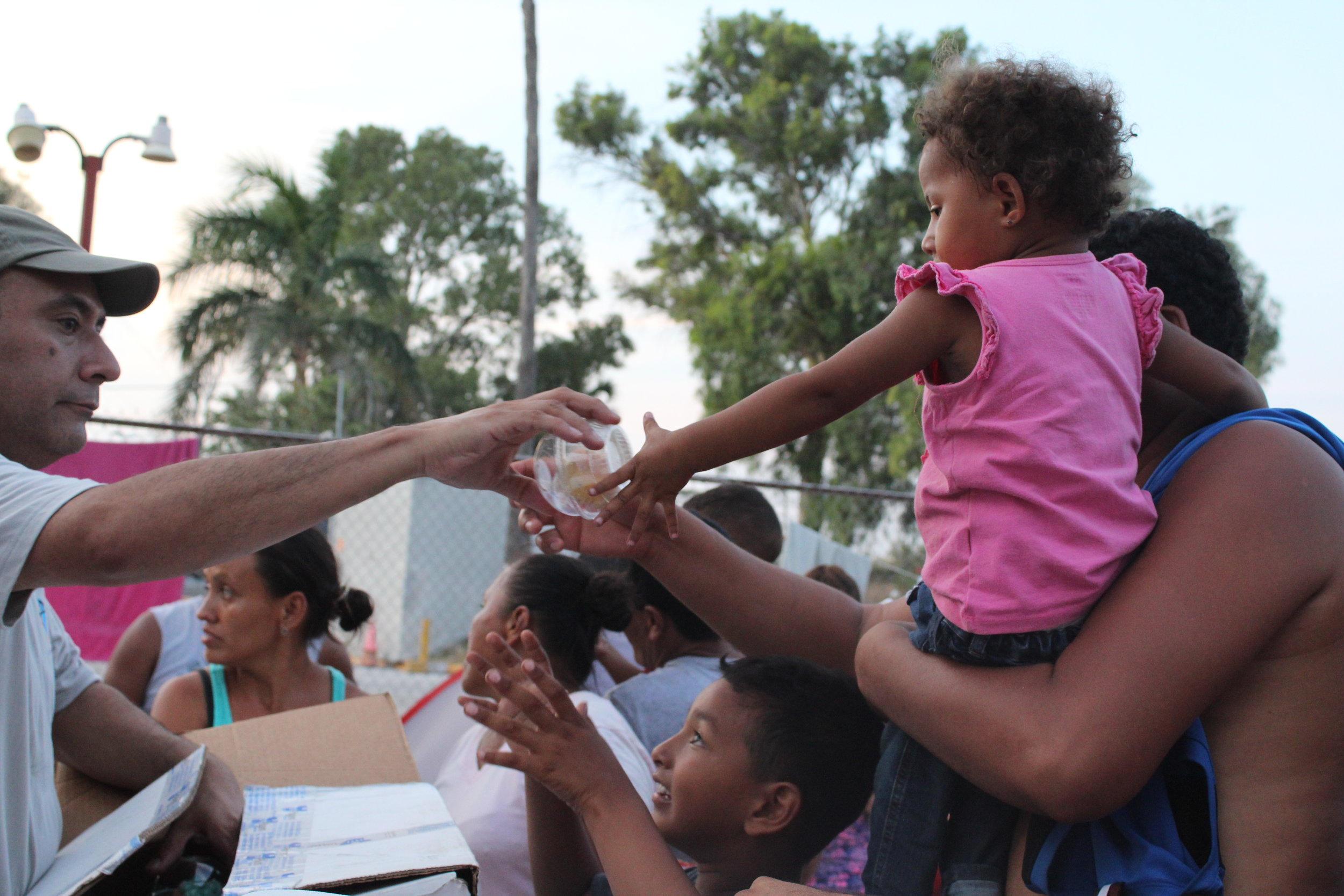Meet the Woman Standing Up for Asylum Seekers at the U.S.-Mexico Border

The Remain in Mexico policy is not only undermining asylum and endangering asylum seekers. It is also overwhelming the few, under-resourced Mexican civil society organizations that are struggling to provide for thousands of vulnerable families who have been returned through the program to cities in Tamaulipas, Mexico. Mexican humanitarian workers are taking great risks to help those in need despite violence against asylum seekers and those that shelter them. Such is the case of Gladis, one of the few people providing aid to several hundred asylum seekers returned to Mexico who are camped out near the international bridge in Matamoros between Mexico and the United States.
Gladis founded the organization Ayudandoles a Triunfar (“Helping Them Succeed”) in 2011 to support migrants transiting through Matamoros on their way to the United States. Gladis was moved by the migrants she saw who had no place to sleep or food to eat and moved quickly to set up the organization and provide those passing through with relief.

But in 2018, Gladis noticed more and more people stranded at the border crossing in Matamoros.
“These were individuals who lived on the edge of both countries without any aid or support,” Gladis told Refugees International in an interview.
Those stuck at the crossing were subject to the so-called metering policy, in which U.S. Customs and Border Protection limited the number of asylum seekers allowed to enter the United States at ports of entry, requiring them to wait three to four months before crossing the border to file their case.
“That’s when the problems started,” Gladis recounted.
Although Ayudandoles a Triunfar was conducting relief operations, demand was soon too big for the small Mexican NGO, and the situation was only getting worse. Even with metering in place, there was a relatively fixed number of people to help, and Gladis and her staff could anticipate needs. But when the Remain in Mexico policy began in late July 2019, more than 200 asylum seekers were returned each day.
“That’s when the situation became the most desperate,” Gladis explained. “[The Mexican government] opened the doors for thousands of returned asylum seekers without considering the consequences.”
In the past, Gladis’ work focused on short-term support of migrants. However, with new U.S. policies and the increasing numbers of stranded families in Matamoros, her job has become a long-term battle to supply life-saving assistance to traumatized parents and kids.

“If they need a doctor, I go to the clinic and find them a doctor. If they need bathrooms, I get them portable potties. I am their voice in Matamoros, whatever they need I try to get,” she explained.
“Every day we get more returned asylum seekers who thought that their odyssey was over once they crossed to the United States. However, once they are back in Matamoros, they realize that it is far from over. This causes them collective fear and stress.”
Lacking money and shelter, many asylum seekers feel they cannot wait in Matamoros for several weeks until their assigned U.S. immigration court dates.
“I am worried about those who are pushed to relinquish their asylum claims since they sometimes sell everything they own to travel to the United States. Sending them back empty-handed and even with debts only increases their vulnerability on their way home and once they get there,” she explained.
Since the implementation of the Remain in Mexico policy, Ayudandoles a Triunfar is no longer capable of keeping up with swelling needs. Moreover, in a region of Mexico where violence is rampant, Gladis feels insecure herself. In August 2019, another prominent humanitarian worker named Pastor Aaron Mendez was kidnapped in Nuevo Laredo, Tamaulipas.
“This is an issue that goes beyond us, there are multiple testimonies of the human rights violations, and we can only do so much because we are also vulnerable,” stressed Gladis.
The government of Mexico does little to support the work of humanitarian organizations working with migrants, and even less to protect the humanitarian workers risking their lives in Northern Mexico.

Despite the risk, Gladis is committed to continuing her work. Right now, her most important allies are American volunteers who cross the bridge every day to provide food or medical assistance to the returned asylum seekers. However, Gladis stressed the need for adequate infrastructure to respond to the large numbers of asylum seekers in Matamoros.
“We are only a tiny part of the asylum response system; therefore, we need more support from the government and international organizations to make our voice heard.”